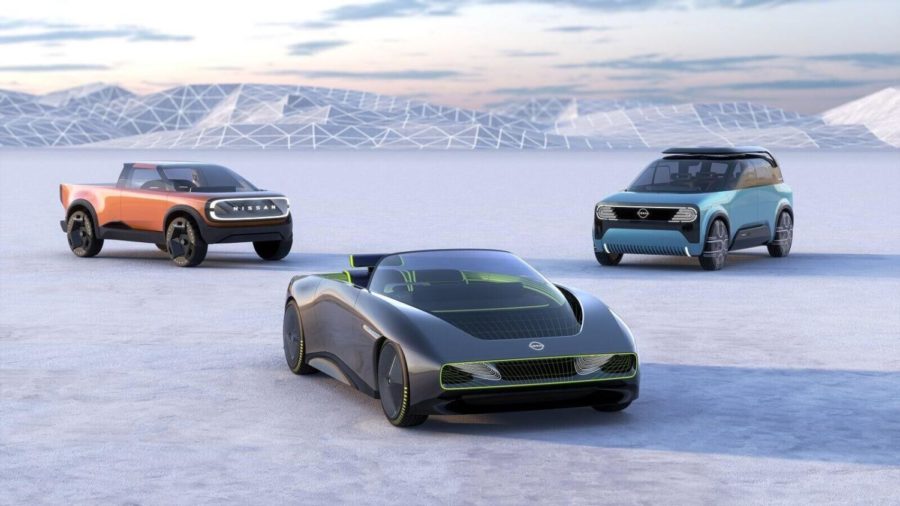Inside Nissan’s Nearly $18 Billion EV Investment
With electrification at the center of its long-term strategy, Nissan plans to launch 23 new electrified models, including 15 new EVs, by 2030. (Nissan)
November 29, 2021
Nissan Motor Company has revealed its plans for the next decade, including a significant shift toward electrification, deepening its proprietary technologies, and expanding global operations. The automaker says it will invest 2 trillion yen (nearly $18B U.S. dollars) over the next five years to achieve its goals.
The announcement occurred during the reveal of its latest long-term vision dubbed Ambition 2030. Under this plan, Nissan will release 23 new models worldwide by 2030, with 15 being electric vehicles (EVs). By 2030, the automaker intends 40 percent of its U.S. sales to be EVs and to electrify 50 percent of its fleet.
To support this vision, Nissan will invest heavily in battery technology. According to Nissan CEO Makoto Uchida, this will be a vital component of the plan’s success. “Batteries will be the key to transition,” said Uchida. “With batteries made smaller and thinner, we can offer flexible layouts, with more dynamic performance, expanding to larger segments, like pickup trucks.”
Nissan says it will launch an EV with a proprietary solid-state battery system by April 2029. In the meantime, the automaker will integrate cobalt-free battery technologies into its EVs, a move they say will reduce costs by 65 percent. Nissan and its partners will increase their global battery production capacity to 130 GWh by 2030.
In addition to battery technology, Nissan will expand its ProPilot advanced driving assistance system in both Nissan and Infiniti vehicles. Nissan is also planning to incorporate Light Detection and Ranging (LiDAR) systems on all new models by fiscal year 2030. An advanced sensor system, LiDAR is currently used by several self-driving car companies, such as Waymo. In 2022, Volvo’s flagship SUV, the XC90, will also include LiDAR.
To keep up with these advancements, Nissan will hire 3,000 new tech and engineering employees across the globe. The automaker will centralize its EV manufacturing and sourcing by expanding its EV36Zero, an EV hub concept in the United Kingdom. In addition, Nissan aims to open new battery refurbishing facilities in Europe by March 2023 and in the United States by 2025.
As a part of Nissan Ambition 2030, the company also revealed three new concept cars to deliver Nissan’s new EV vision: the Nissan Max-Out, a slick, convertible EV; Nissan Hang-Out, a utility van-like vehicle with swiveling seats and rear bench seating; and the Nissan Surf-Out, a pickup with a flatbed that flows into the seating area.
Up until now, Nissan’s electrification plans have been fuzzy despite its early entry into the American EV market with the first-generation Leaf. Meanwhile, most of its rivals have taken a clear stance. Toyota Motor Corp. announced plans to invest $3.4 billion in U.S. battery production with a goal of 70 electrified models by 2025. Honda Motor Company has pledged to have a fully electric fleet (both BEV and fuel cell) by 2040. Other manufacturers plan to be fully electric earlier, with Volvo and Cadillac pledging a 2030 milestone. With the release of Nissan Ambition 2030, it’s clear that Nissan intends to be a serious contender in the race towards electrification.



























































































































































